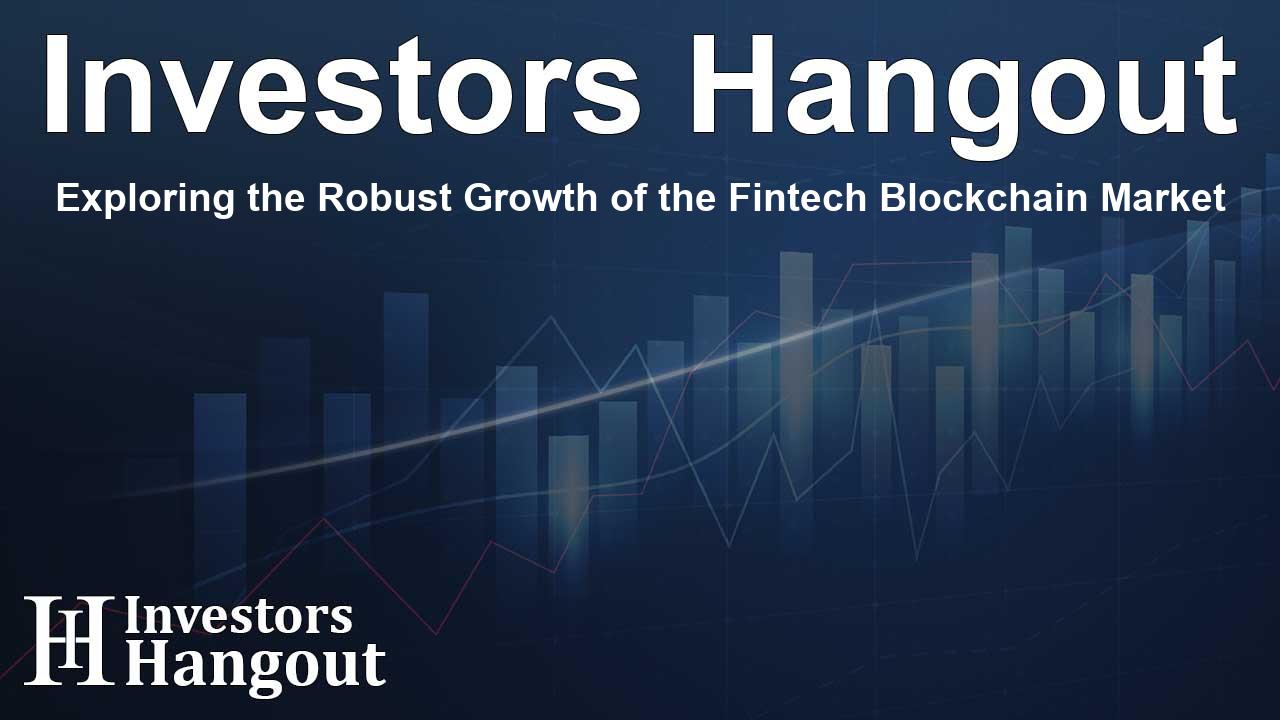Exploring the Robust Growth of the Fintech Blockchain Market

Understanding the Significance of Fintech Blockchain
In today's digital age, the importance of fintech blockchain technology has risen dramatically. It acts as a decentralized ledger that enhances the efficiency of financial transactions. Blockchain complements traditional financial services like payment processing, lending, and asset management by reducing fraud risks and accelerating transaction speeds, all while minimizing costs. This innovative technology facilitates direct peer-to-peer transactions, significantly improving financial operations and promoting inclusivity.
The Growth Trajectory of the Fintech Blockchain Market
Recent analyses reveal that the global fintech blockchain market, valued at approximately USD 3.83 billion, is on track to reach a remarkable USD 129.73 billion. This significant growth represents a compound annual growth rate (CAGR) of 47.92% from the forecast period of 2024 to 2032, marking a pivotal shift in financial dynamics.
Advantages Driving Market Expansion
The rise of fintech blockchain is driven by an increasing demand for faster and more secure cross-border transactions. Traditional financial systems often face delays, high fees, and inefficiencies, particularly in international payments. Blockchain addresses these challenges by enabling real-time transactions and bypassing intermediaries. Moreover, with the growing integration of digital currencies within financial institutions, blockchain's appeal continues to grow, propelling its adoption further into fintech.
Impact of Smart Contracts
Smart contracts have also emerged as a game-changing component within the fintech sector. These self-executing contracts streamline processes across various financial services, from lending to insurance. By automating transactions and enforcing predefined terms, they minimize the risk of fraud and reduce the reliance on traditional intermediaries. This technological shift enhances operational efficiency significantly.
Collaborations Boosting Innovation in Fintech
The collaboration between innovative fintech startups and established financial institutions has become a catalyst for market growth. Startups introduce fresh ideas and agility, while traditional firms offer funding, regulatory expertise, and scalability. This combination fosters the development of advanced blockchain solutions tailored to meet the evolving needs of the financial services sector.
Challenges: Regulatory Uncertainty
Despite the promising growth trajectory, regulatory uncertainty remains a significant hurdle for blockchain technology in finance. The rapid adoption of blockchain has outpaced the implementation of clear regulatory frameworks, creating confusion in various regions. Differing government stances towards cryptocurrencies and blockchain-based solutions complicate the landscape, making it crucial for financial players to navigate this regulatory maze cautiously.
The Ascendancy of Decentralized Finance (DeFi)
The rise of decentralized finance (DeFi) presents another growth avenue for the fintech blockchain landscape. DeFi eliminates intermediaries and allows users to engage in financial activities such as lending and trading directly. This shift empowers individuals globally, especially those in underbanked regions, to access essential financial services through just a smartphone and internet connection.
Key Players Shaping the Market
Several companies are pivotal in driving the fintech blockchain market forward. Notable examples include Ripple Labs Inc., Coinbase, and Binance in the United States. These firms have been instrumental in developing tools and applications that harness blockchain technology's full potential, redefining how financial institutions operate.
Ongoing Developments
Recent strategic partnerships highlight ongoing innovations in the space. Companies are increasingly recognizing the need for improved liquidity management and faster transaction facilitation, particularly in cross-border payments. These advancements are crucial for enhancing the overall user experience and fostering trust in blockchain solutions.
Frequently Asked Questions
What are the key drivers of the Fintech Blockchain market?
The main drivers include the demand for faster transactions, the adoption of digital currencies, and the efficiencies provided by smart contracts.
How does blockchain technology enhance financial transactions?
Blockchain technology improves transactions by enabling real-time processing, reducing costs, and minimizing fraud through transparent and secure record-keeping.
What challenges does the Fintech Blockchain market face?
Regulatory uncertainty across regions poses considerable challenges for widespread blockchain adoption in financial services.
What role do smart contracts play in fintech?
Smart contracts automate and secure financial transactions, increasing trust and reducing the need for intermediaries in contract execution.
How is decentralized finance impacting traditional finance?
Decentralized finance is disrupting traditional systems by providing direct access to financial services, empowering users, especially in underserved regions.
About Investors Hangout
Investors Hangout is a leading online stock forum for financial discussion and learning, offering a wide range of free tools and resources. It draws in traders of all levels, who exchange market knowledge, investigate trading tactics, and keep an eye on industry developments in real time. Featuring financial articles, stock message boards, quotes, charts, company profiles, and live news updates. Through cooperative learning and a wealth of informational resources, it helps users from novices creating their first portfolios to experts honing their techniques. Join Investors Hangout today: https://investorshangout.com/
Disclaimer: The content of this article is solely for general informational purposes only; it does not represent legal, financial, or investment advice. Investors Hangout does not offer financial advice; the author is not a licensed financial advisor. Consult a qualified advisor before making any financial or investment decisions based on this article. The author's interpretation of publicly available data shapes the opinions presented here; as a result, they should not be taken as advice to purchase, sell, or hold any securities mentioned or any other investments. The author does not guarantee the accuracy, completeness, or timeliness of any material, providing it "as is." Information and market conditions may change; past performance is not indicative of future outcomes. If any of the material offered here is inaccurate, please contact us for corrections.